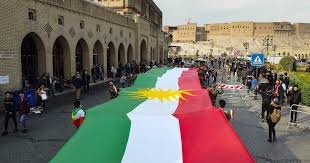Iraq’s Kurdistan Democratic Party declares boycott of local elections citing Supreme Court interference

The Kurdistan Democratic Party (KDP), the primary political entity in northern Iraq’s semi-autonomous Kurdish region, announced on Monday its decision to abstain from participating in the upcoming local elections, slated for June 10. The KDP cited allegations of undue interference by the Federal Supreme Court of Iraq, based in Baghdad, as the primary motivation behind its boycott.
This stance stems from a contentious ruling issued by the Federal Supreme Court in February, which mandated alterations to the electoral law. Among these changes was a reduction in the number of parliamentary seats allocated to the Kurdish region from 111 to 100, effectively eliminating reserved representation for Turkmen, Armenian, and Christian minority groups. Additionally, the court decreed that the Iraqi Electoral Commission would assume oversight of the electoral process, displacing local committees.
In a formal statement, the KDP articulated its refusal to comply with what it deemed an unconstitutional decree, imposed from external sources. Emphasizing its commitment to upholding legal and constitutional principles, the party affirmed its decision to abstain from a vote orchestrated by a court ruling perceived as infringing upon the region’s autonomy and legislative prerogatives.
The KDP’s withdrawal from the electoral process carries significant ramifications, considering its status as the predominant political force in the outgoing Kurdish parliament, holding 45 of the total seats. Conversely, the Patriotic Union of Kurdistan (PUK), with 21 seats, maintains closer ties with the federal government in Baghdad. Notably, the PUK occupies the Iraqi presidency, designated for a Kurd, while the presidency of the Kurdish region is typically filled by a KDP nominee, pursuant to an informal agreement between the two parties.
The decision by the KDP to abstain from the forthcoming elections threatens to further postpone the electoral process, which had already faced delays, originally scheduled for October 22. This move aligns with recent declarations by Christian and Turkmen political factions, also opting to boycott the vote. Expressing concern over these developments, the United States, a staunch supporter of Iraqi Kurdistan, urged for the comprehensive participation of all stakeholders in ensuring the integrity and legitimacy of the electoral process. State Department spokesman Vedant Patel, while acknowledging the grievances expressed by Iraqi Kurds, cautioned against the detrimental effects of electoral boycotts on the collective interests of the Kurdish populace and the broader Iraqi citizenry.
The semi-autonomous Kurdish region of Iraq, established in 1991, continues to grapple with complex political dynamics and ongoing efforts to safeguard its autonomy within the framework of the Iraqi state.



